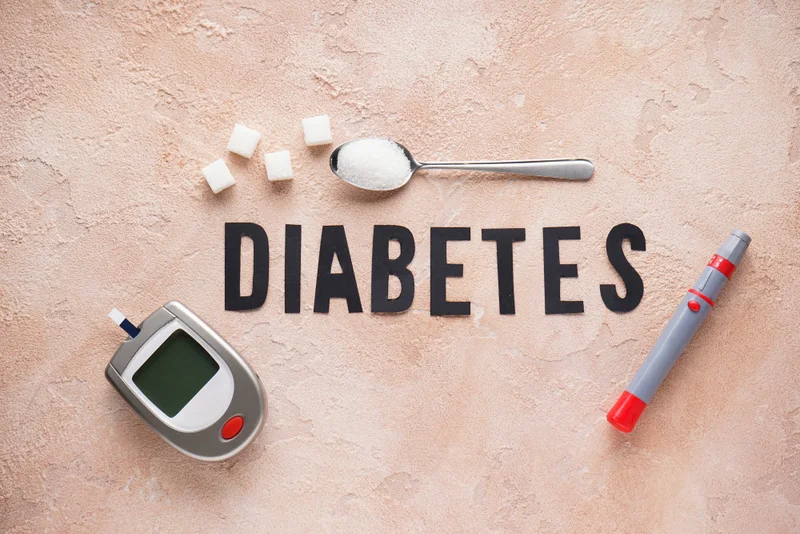- Published on: Sep 07, 2021
- 2 minute read
- By: Second Medic Endocrinologist
Reduce LDL Cholesterol Naturally
Are worries about your cholesterol levels making your heart feel heavy? Curious about LDL cholesterol, good cholesterol, and what high cholesterol might feel like? Well, it's time to make your heart health a priority, the natural way. This blog is like your friendly handbook, showing you the ropes on lowering LDL cholesterol and keeping your cholesterol levels in check. Let's dive into the realm of cholesterol management together and find the secrets to a healthier heart!
If you've ever wondered about the balance between good and bad cholesterol or questioned the signs of high cholesterol, you're not alone. This guide is here to simplify it all for you. No complicated jargon, just straightforward tips on reducing LDL cholesterol naturally. So, are you ready to unlock the doors to a heart-healthy life? Let's begin this journey together and embrace the keys to a happier, healthier heart.
LDL Cholesterol
LDL cholesterol, often referred to as the "bad cholesterol," plays a significant role in heart health. But what exactly is it? LDL cholesterol is like a delivery truck carrying cholesterol to various cells in the body. However, when there's an excess, it can build up in the arteries, leading to potential heart issues.
Deciphering Cholesterol Levels
Cholesterol levels are commonly assessed through a cholesterol test. The results often include information about LDL cholesterol, HDL cholesterol (the good one), and total cholesterol. Keeping these levels in check is crucial for a healthy heart.
Recognizing High Cholesterol Symptoms
High cholesterol doesn't always come with warning signs, making regular check-ups and awareness vital. Nevertheless, some may experience symptoms like chest pain, fatigue, or difficulty breathing. Understanding these signs can prompt timely action.
The Role of Good Cholesterol
Amidst the concern about LDL cholesterol, let's not forget its counterpart - HDL cholesterol. High levels of HDL cholesterol are associated with a lower risk of heart disease. How can you boost your good cholesterol naturally? Regular exercise, a balanced diet, and avoiding trans fats are key contributors.
Online Doctor Consultation
In today's fast-paced world, online doctor consultation offers a convenient way to address health concerns, including cholesterol management. Access expert advice from the comfort of your home, ensuring proactive measures to reduce cholesterol levels.
The Impact of Lifestyle Choices
Making small but impactful changes in your daily routine can contribute significantly to managing cholesterol levels. Consider incorporating heart-healthy foods like oats, nuts, and fatty fish into your diet. Swap out saturated fats for healthier alternatives and embrace a more active lifestyle.
Cholesterol-Friendly Diet
Let's delve into the heart of the matter - your diet. Adopting a cholesterol-friendly diet involves incorporating foods rich in soluble fiber, such as fruits, vegetables, and whole grains. These foods can help lower LDL cholesterol and improve overall heart health.
Smart Supplementation
Certain supplements, like plant sterols and stanols, can contribute to lowering LDL cholesterol. However, it's crucial to consult with a healthcare professional before adding any supplements to your routine. They can provide personalized advice based on your specific health needs.
Empowering Through Knowledge
Understanding the ins and outs of cholesterol management empowers you to make informed decisions. Stay informed about cholesterol levels, regularly monitor your health, and collaborate with healthcare professionals for a tailored approach to reducing cholesterol naturally.
Building a Routine for Heart Health: Incorporate daily habits that support heart health. This could include a morning walk, choosing heart-healthy snacks, and staying hydrated. Small, consistent actions pave the way for a healthier lifestyle.
Regular Cholesterol Check-ups: Schedule regular cholesterol tests to keep track of your levels. Understanding your numbers enables you to make proactive decisions, ensuring that you stay on top of your heart health.
Conclusion:
lowering LDL cholesterol naturally requires a mix of understanding, lifestyle tweaks, and proactive healthcare. With this guide, you're ready to begin your journey toward a healthier heart. Always remember, your heart deserves top-notch care, so let's kick start this journey today! By staying informed and making small changes to your routine, you can pave the way for a stronger, happier heart. Don't hesitate to reach out to healthcare professionals for personalized advice and support along the way. Together, we can make strides towards optimal heart health and overall well-being. Your heart is at the center of your health, so prioritize it with every decision you make. Let's commit to nurturing our hearts, ensuring they continue to beat strong for years to come. Here's to a future filled with vitality and vitality
Read FAQs
A. The fastest way to lower LDL cholesterol is through medication prescribed by a healthcare professional. However, natural methods like adopting a healthy diet and regular exercise can also help lower LDL levels over time.
A. Yes, LDL cholesterol can be lowered naturally through lifestyle changes such as adopting a heart-healthy diet rich in fruits, vegetables, whole grains, and lean proteins, along with regular physical activity and avoiding smoking.
A. Foods rich in soluble fiber like oats, beans, fruits, and vegetables are excellent for lowering LDL cholesterol. Additionally, incorporating healthy fats found in avocados, nuts, seeds, and fatty fish can also help improve cholesterol levels.
Our Services
Request A Callback
Recent Posts
Is Frequent Urination Always a Sign of Diabetes?
Jul 04,2025
Best Treatment Options for IBS in India
Jul 03,2025
Insomnia in Teens and How to Manage It
Jul 01,2025
Silent Symptoms of Cervical Cancer Women Ignore
Jun 27,2025










